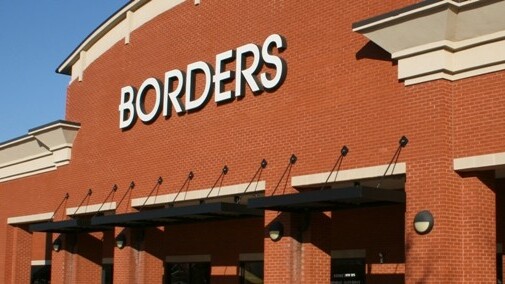
‘Digital’ gets blamed for just about everything these days. The state of the music industry? Blame Spotify. Movies? Why not point that bony finger at The Pirate Bay. High-Street retailers? Amazon, c’mon now.
Yes, The World Wide Web would be top of the FBI’s most-wanted list if we were to believe all that we read. Sure, it has shifted the goalposts and has given the rules of engagement a spit-shine, but it can’t be blamed for everything.
When Amazon announced last year that Kindle books were now outselling ALL of its print books combined, this was big news. An industry built up over 500 years after Johannes Gutenberg pulled the printing press, as if by magic, out of his Renaissance-era hat, came tumbling down in a matter of a few years. But the writing was already on the wall for bookstores long before the eBook came along to spoil the party.
The year was 1995, I remember it like it was yesterday. Amazon’s book postal service almost single-handedly killed a once burgeoning High-Street industry. That might be a slight exaggeration, but it’s about right. When eBooks came along, it was more like a kick-in-the-ribs when hardbacks & paperbacks were already lying wounded.
Has the mighty Borders really been liquidated? It really is hard to believe that such a mighty company is no more. But as sad as I was to see Borders’ demise, it’s all too easy to blame the Internet for things. New figures from the Local Data Company, on behalf of tax and accountancy firm PricewaterhouseCoopers (PwC), revealed that 72 bookshops closed across the UK in 2011, as reported by TheBookseller.com.
But wait – 57 bookstores opened, which means there was an overall reduction of just 15. So whilst the downwards spiral continues, it’s not as bad as it first seems. Of course, looking at last year’s figures alone only tell part of the story, and it’s clear much of the rot had already set in, with independent bookstores closing in their droves through the noughties. However, it is still interesting to look at some of the other reasons why the remaining bookstores are closing down.
Boom and bust

Throughout 2011, 14 stores closed each day across the UK…across the board. Bookshops, electricals, home furnishings, menswear, off-licenses, bars/pubs…you name it.
Mike Jervis, an insolvency partner and retail specialist at PwC, noted that one reason bookstores were in decline on the High-Street wasn’t just because of the digital onslaught, but because they were carrying “unnecessarily large property portfolios.”
“A common feature of retailers in distress who we are dealing with is that they have too many locations,” says Jervis. “Relatively long leases have been entered into in a growth phase of the economy which are no longer appropriate. Where over-expansion has already taken place, retailers need to face that reality and formulate a strategic plan in partnership with landlords, not in confrontation with them. Electricals and bookshops have suffered as these products are now increasingly bought online, but retailers in this sector are typically carrying unnecessarily large property portfolios.”
So, it seems that many retailers, including bookstores, are paying the price for speculating during boom times. We’re already seeing UK entertainment retailer HMV shed its load, as it closes down stores across the country and tries to offload its portfolio of live venues.
It would be too easy to suggest that something should be done at a higher level to help businesses streamline and cut down their ‘locations’, but I guess a lease is a lease. The upshot of the lack of support on this front, however, is that winding up business altogether seems to be the only viable alternative. Faced with this stark reality, wouldn’t it be better to encourage stores to stay open by offering financial incentives to do so?
Tim Godfray, Chief Executive of the Booksellers Association, has called for “dynamic and innovative action” from local councils. “Under new legislation shortly to be introduced by the coalition government, local authorities will soon have the flexibility to introduce local business rates and to give discounts,” he says. “A reduction in the business rate would greatly help booksellers to balance out the differences between high street and Internet retailers.”
A step in the right direction for sure if, or when, this legislation comes to fruition. The need to adapt the ‘real world’ to compete more effectively with the online is more important than ever. Long leases aside though, there’s one front on which bricks-and-mortar bookstores can never effectively compete with the likes of Amazon.
The convenience of being able to buy a book – print or otherwise – 24-hours a day, from the comfort of your livingroom or from your mobile phone, means the digital world will always have an unfair advantage over your local High Street. But by streamlining and cutting back, we’ll hopefully still be able to ‘pop down the road’ and ‘try before we buy’ for some years to come.
Get the TNW newsletter
Get the most important tech news in your inbox each week.




